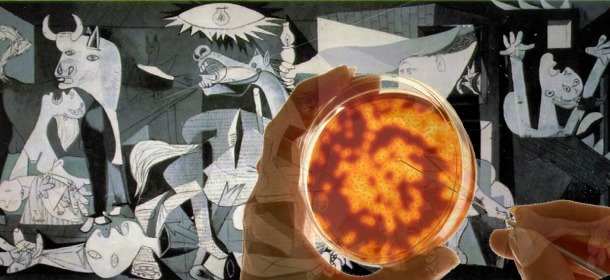Featured
Artificial Blood Kills, But Trials Continue Without Patient Consent
This is an updated version of one of Gaia Health’s first pieces, published over three years ago. The danger it tells about – artificial blood trials without patient consent – is still with us, as will be discussed in an upcoming article.
In 2007, if you had been in an accident during the previous ten years, you could have been a guinea pig for a medical product without being informed—and the FDA approved it. The products are artificial blood. Several types have been produced by different pharmaceutical corporations. Perfectly good human blood could have been available, but you would have been given the artificial stuff.
The story, though, gets much worse: The results of the studies were abysmal. The number of deaths increased by 30% and heart attacks nearly tripled. According to Charles Natanson, a researcher with the National Institutes of Health and the lead author of the study, Cell-Free Hemoglobin-Based Blood Substitutes and Risk of Myocardial Infarction and Death:
There have been no meaningful beneficial effects reported in any trial.
So what is the FDA’s response to these results? They plan to do more trials! They’re saying that the studies were “too broad” and that new studies should focus only on patients who are expected to die.
So only the weakest, most severely injured patients will be placed at increased risk of death and heart attack!
A product that kills 30% more people and causes three times more heart attacks than the natural alternative, blood, has produced no benefit. And the response of the FDA is to do more trials! The only difference is that the guinea pigs are expected to die, rather than simply being in great need of a blood transfusion, as in the first sixteen trials.
How We Finally Learned About These Trials
The organization Public Citizen became concerned and sued to get data. As a result, National Institutes of Health (NIH) researcher Charles Natanson, MD, and others took a look at information from the studies, which were done between 1998 and 2007, a span of ten years. That’s ten years during which more and more people were placed at risk after each preceding study had shown no benefit and increased risk of death.
According to Natanson, the FDA should have been aware of the risks by 2000. Instead, they did another five trials. Another 714 patients were subjected to risks.
Findings from previous studies were not disclosed to hospitals considering doing trials. Jay S. Epstein, who is the director of the Office of Blood Research and Review, a division of the FDA, said that studies were approved only when the potential benefits outweighed the risks. On what basis the potential benefits were determined was unstated.
The FDA Trials
The Journal of the American Medical Association printed Natanson’s study in April 2008. It documents the deaths and heart attacks caused by artificial blood in these FDA-approved tests. It states the likely reason for these products’ toxicity. They contain hemoglobin molecules that reside outside red cell membranes. Normally, hemoglobin exists only inside the red cells. As a result, they bind with nitric acid quickly, resulting in systemic vasoconstriction and platelets being made inactive. Vasoconstriction, decreased blood flow, and other effects lead to thrombosis—heart attacks.
Artificial blood products tested:
- PolyHeme, manufactured by Northfield Laboratories, Inc.
- HemAssist, manufactured by Baxter Healthcare Corporation
- Hemolink, manufactured by Hemosol BioPharma, Inc.
- Hemopure, manufactured by Biopure Corporation
- Hemospan, Sangart Inc.
The authors noted that requests for more detailed unpublished data of trials done by Northfield Laboratories, Baxter Healthcare Corporation, and BioPharma were refused. They were referred to press releases. Though other data was available for Northfield’s PolyHeme, the authors were unable to locate results from trials by Baxter, which produced Optro, or BioPharma, which produced Hemolink. (Another trial’s results were available, which is why Hemolink is included in the list above.)
These companies’ hiding of their results, along with the FDA’s tacit agreement of this practice—indeed, the FDA’s own hiding of such information—is indicative of a culture of deceit in the entire pharmaceutical industry and its cohorts in crime, the so-called regulatory agencies.
The Trail of Death
The number of deaths in patients who received artificial blood was 164, compared with 123 in those who didn’t receive it. Among those who were given artificial blood, there were 59 myocardial infarctions, as opposed to 16 among those who didn’t get it.
In a finding that conflicts with the FDA’s intent to continue testing on people at extreme risk of death, the report states that there was no difference in results for any subgroup. In other words, there is no reason to suspect that people who are expected to die will respond any better to artificial blood than those who stand a reasonable chance of living. Thus, the FDA’s plans to do more tests are unjustifiable by any estimation.
The authors also point out that the results of the tests were not made available to anyone who might have been able to use them. They were not provided to scientists, doctors, institutional review boards, competing manufacturers, or the public.
A statement straight from Natanson’s study is particularly incriminating of the FDA:
The most recent PolyHeme trial requires special mention for 2 reasons. First, the FDA gave approval for this trial in trauma patients even though the FDA presumably had unpublished data showing a significant increase in MIs [myocardial infarctions] in the prior PolyHeme trial in vascular surgery patients; the FDA had the results from trials involving other HBBS products also showing harm; and the FDA had placed a clinical hold on a Hemopure trauma trial because of serious adverse events in previous, mostly unpublished, trials of this HBBS [hemoglobin-based blood substitutes, that is, artificial blood]
The FDA allowed a second trial of a product, PolyHeme, in spite of the fact that the first trial had shown an increase in heart attacks and they knew that other similar products had the same results. Further, the FDA had previously stopped a trial of another equivalent product because of adverse outcomes.
The FDA Is a Big Pharma Shill
Clearly, blind trust in pharmaceutical companies is dangerously misplaced. That’s not so surprising. After all, the purpose of a corporation is profit. Anything else is merely a means for achieving that end. Therefore, it isn’t surprising that, given the opportunity, pharmaceutical manufacturers misrepresent and hide the results of drug trials.
However, the agency that is supposed to be the watchdog over pharmaceutical corporations has become nothing more than their shill. As seen in artificial blood trials, the FDA now actively promotes trials for products that have already been shown to have no benefit and to cause death. They respond by hiding the results of those trials, and they abuse their power by allowing testing without informed consent of the victims.
The FDA is Big Pharma’s shill.
Sources:
- Virtual Mentor, American Medical Association Journal of Ethics
- boston.com, “Experts urge only limited testing of blood substitutes”
- Washington Post, Columbia Tribune, “FDA Faulted for Approving Studies of Artificial Blood”
- Journal of the American Medical Association, Cell-Free Hemoglobin-Based Blood Substitutes and Risk of Myocardial Infarction and Death, Charles Natanson, MD, et al.
Tagged artificial blood, artificial blood trials, big pharma, conventional medicine, evidence-based medicine, modern medicine, pharmaceutical drugs, pharmaceuticals, pseudo-science, pseudoscience, science

















Pingback: Gaia Health